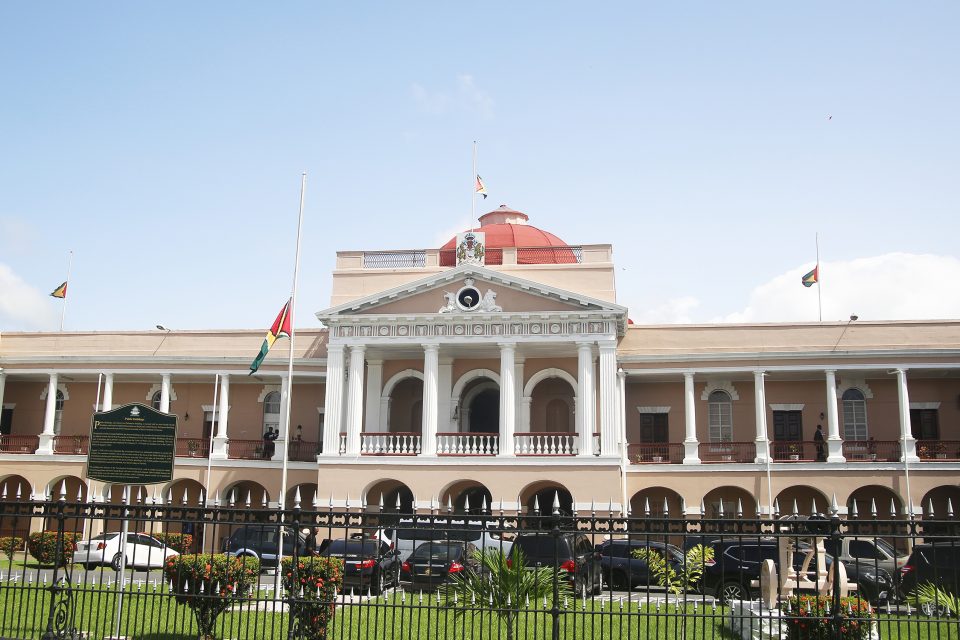A bill to provide funding for general elections will be among the items on government’s agenda when the National Assembly is reconvened on April 11th, according to State Minister Joseph Harmon.
“No, it [the sitting] can’t be exclusive [because] there [is] other business to be conducted in the National Assembly. There are some legislation, which has to be tabled,” Harmon noted, when asked if the sitting will be held to deal exclusively with funding for elections.
Opposition leader Bharrat Jagdeo has made it clear that the PPP/C will not be attending any parliamentary sittings before the Caribbean Court of Justice (CCJ) rules on the validity of the no-confidence motion that was declared carried in the National Assembly last December. Yesterday the court held a case management session during which May 10th was agreed as the date for oral arguments. No date for a ruling was set.
The National Assembly has not met since January 3rd in wake of the no-confidence vote against government.
Harmon yesterday noted that there are annual reports and audited financial statements which have to be tabled in the National Assembly. “There’re some other bills which are in select committees that should come to the floor of the National Assembly for passage, so there are other issues in addition to funding for elections,” he added.
He, however, stressed that funding for elections is a matter which has to be first dealt with by the Guyana Elections Commission (GECOM). The Commission, he said, has to indicate to the government how much it needs. There-after, it goes to the Minis-try of Finance and once the figures are justified, it is then sent to Cabinet for approval for the Minister to take it to the National Assembly. “So these are various steps along the way and it’s not just we can say okay ‘give the elections commission three billion or four billion dollars. It is a process which has to be gone through and this process starts with the elections commission making a clear determination as to what is it that they require.”
Harmon couldn’t say whether this process has started but he stressed that the president has given a commitment and that whatever is necessary to honour it will be done.
In a March 19th letter to President Granger, which was in response to a request for a work programme that would see the holding of credible polls in the shortest time, Patterson had said that the Commission would need “an amount of $3.5 billion” and stressed that “additional resources” would be needed to facilitate an early end to the house-to-house process, which the Secretariat originally projected would be concluded in February, 2020.
Patterson said that he has been assured that with a “significant increase in the allocated resources for the exercise and an adjustment in the management arrangements for some procurement activities, the execution of the programme could be restructured to be completed at least two months earlier, in 2019.”
Should this be achieved, he argued, most of the Commission’s concern for credibility and timeliness, and indeed most stakeholders, would be addressed. “I would, therefore, urge you to support this by providing the required additional resources and appropriate guidance to those agencies and authorities whose cooperation is required if our objectives are to be achieved,” he added.






